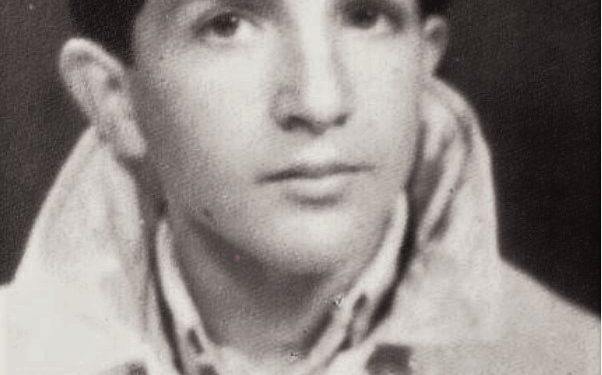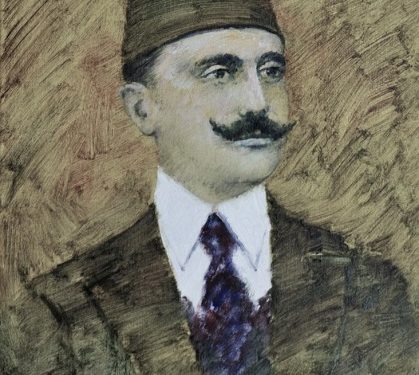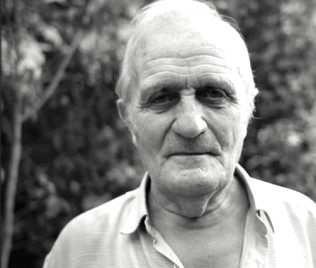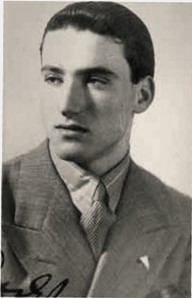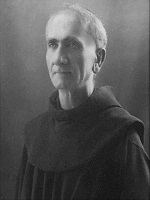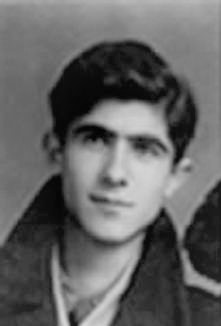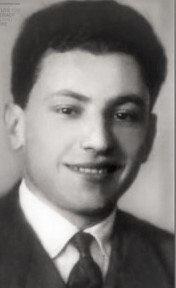By Islam Spahija
Part Five
Continued from the previous issue
XHELAL KOPRENCKA
Memorie.al / I don’t believe there is anyone who hears this name today and doesn’t pay attention to it. I don’t believe there is anyone who has known him even a little and doesn’t respect him. I don’t believe there is anyone who, just because he happened to be a friend of his, doesn’t consider this an honor, and more certainly, I don’t believe there is anyone who is a close friend of his, doesn’t remember him with tears of longing. And in fact, as soon as this name is heard, a steppe is created, like the one when we are faced with greatness, then comes a word of respect, adoration and finally longing and sorrow, as Mitrush Kuteli would tell us.
All this testifies to that character, that man, hero, friend, comrade, teacher, our fellow sufferer, the pride of the class of former political persecuted, who has the name Xhelal Koprencka. From his biography, it is enough to mention a few details, in it to determine the dignity of origin. He comes from a noble family, with distinguished patriotic activity.
The grandfather, whose name Xhelal himself inherited, together with his brothers, was warriors of the pen and rifle. He participated on the great occasion of the declaration of Independence, in the raising of the national flag on November 28, 1912 in Vlora. While his father, was a senior official in the administration of the Monarchy of King Zog I in Tirana. Xhelal was born here and here he finished 7-year school.
With the coming of the communist regime to power, both his parents (father and mother) were imprisoned, leaving him alone with his sister, a child, at the mercy of fate. The wave of persecution threw them from the capital to Shkodra. There, with effort and sacrifice, he managed to obtain his high school diploma and practice the profession of plumber. But his ideological and cultural formation would not end there.
He was an excellent autodidact and we can say without a doubt that; he reached the level of a highly educated intellectual. His natural qualities were not long in coming to the fore, and thus he would quickly stand out in the social circle where he lived and worked.
The incessant persecution pushed the indomitable young man into prison several times. They fabricated all kinds of charges against him, until they locked him up to never come out again, with the charge of agitation and propaganda, the most sensitive point of the Red Inquisition. Thus sentenced to a total of 25 years in prison, he was sentenced to the Spaç camp, the camp with the fatal number 303. This camp had become a Bastion of the regime.
There, in 1973, the historic revolt broke out, which shook the foundations of the dictatorship and there, for the first time during the half-century of captivity, the national flag was raised, without the ideological symbol, the bloody star. On this occasion, there, the communist regime shot four political prisoners, who will remain martyrs of democracy and heroes of the anti-communist resistance. Thus, this camp had been transformed into a fortress of resistance and, this resistance, in a way, would have its leaders.
If one was eliminated, another would be replaced. This was done not with ceremony or organization, but by itself, with a certain silent awareness. And of course resistance, since the physical law is resistance to oppression. In the wake of this tradition, the figure of Xhelal Koprencka emerged, his moral qualities reflected, exercising their influence on the mass of prisoners.
The respect for him, both from good and bad had created such an authority for him that it eclipsed even his command. The general opinion was that he had been targeted, to be eliminated. He himself knew this, yet he never wavered. He had already become a teacher and a commander, and like the philosophers of antiquity, he expressed his ideas with personal gestures. He sought satisfaction in sacrifice.
He was an indomitable Stoic. Those who knew him cannot forget his resonant, manly voice; they cannot forget that expression of face that impressed and did not let you notice the smallness of the exhausted body, but saw the greatness, not material, but that of the soul. This was visible through the colorful, radiant eyes that stood out against the dark background of the oval face.
And this contrast between body and soul constitutes that sublime harmony, which has been described with curiosity by well-known biographers of brilliant figures of history, such as Napoleon I or Admiral Nelson. It is interesting to note how miraculous fate threw this sucker from the south to the north, to the metropolis of Albanian culture and patriotism, in Shkodra; to the Shkodra of Fishta, Mjeda, Cardinal Koliqi and many other great figures, with whom that land has been so fertile.
There, too, the brilliant militant Arshi Pipa, who, also from the south, had called Shkodra; his second birthplace. Thinking like this, one cannot help but remember the monumental speech of Father Anton Harapi, on the occasion of the conveyance of the remains of the legendary heroes, Çerçiz Topulli and Mustafa Qulli (Leskovik).
The epic high cleric had said then: “Truly, you were born in Gjinokastra and Leskovik, they are your natural mothers, who gave you breast milk and sunlight; but a little less, Shkodra is not your mother, because there you were born as people and here as heroes”! This message was also given by Xhelal with his life, and let this serve as a warning to those pseudo-democrats or neo-communists that are sowing the seeds of south-north division.
History has not taught us that these have had nor will they ever succeed. A day would come when his patriotic and humanitarian feeling would be crowned with the halo of a martyr. To inspire courage in others and hope for salvation, he decided to sacrifice himself, challenging the most savage dictatorship that history has ever seen. He wrote a letter of protest to the dictator, addressed to the Central Committee of ALPSH.
Enraged by this surprise, they first reacted with reprisals in the camp, and then his spectacular arrest would take place, which would remain indelible in our memory and in history. Here’s how :(……..) It was a spring morning. The sun had just risen. The courtyard of the Spaç camp was filled to the brim with the square mass of silent prisoners, like stones. Police were stationed in all four corners.
Opposite, on a wall that served as a podium, the camp command was lined up, along with officials from the Internal Affairs Branch and the Rrëshen Prosecutor’s Office. One of these, an investigator I believe, a haughty young man, carrying an office bag in his hand, looked at us sullenly, shaking his head menacingly, with curly black hair.
After “everything was settled according to order”, the department commissar uttered the macabre formula: “For continued hostile activity, Xhelal Koprencka and Veis Ceci are arrested in the name of the people”! Immediately after this, Xhelal’s lion-like voice rang out:
– “What a people!… In the name of the enemies of the people”!
– “Golden words!…”, – another voice was heard.
It was the brave Shkodran boy, Ramiz Memçe.
A grave silence reigned. As if by magic, that executioner’s tribune was lowered to the ground and, at the same time, the giant, the heroic figure of Xelal rose. The commissar’s face paled, turned to lime. A pang of conscience, brother?! Everyone was stunned and no one laughed anymore. The skies seemed to have been torn apart: Life had defied death.
Xelal and Veis, his inseparable companion, of an almost primitive purity, passed one after the other with their heads held high in front of the lined-up camp. It was the last time I saw these comrades in suffering and ideals. Later we heard that they were sentenced to the maximum of the article for agitation and propaganda. But this could not pass so “easily”!
“By order from above”, Xelal would be separated from the group; he would be tried again under another article, that of high treason, allegedly having formed a government inside the prison and having “endangered the popular power”. “Oh shame, where your blush is”! (Shakespeare). Xhelal’s mother also went to the Attorney General, Aran Çela, and asked him to pardon her only son, but the soulless inquisitor replied cynically: “You received the punishment you deserved”!
The little granddaughter that the stepmother was holding by the hand, let go of the whip. “Stop! – the eagle mother scolded her. – Don’t please this executioner”! This mother showed her greatness and bravery. She can be compared very well to the Italian mother, who passed from Salerno and reached the mountains of Samarkand in Asia, in search of her son. As great as the King of the Tartars proved to be, so small and mean was the undignified prosecutor who sentenced Xhelal to us.
The exhausted mother returned home, with superhuman patience. However, she died without knowing about her son’s execution. They told her, as they say, a “holy lie”. They told her that her son had managed to escape and go abroad. Such consolation was deserved by that great, long-suffering heart.
The announcement was made officially in the camp, while the members of the newly condemned group were shown photographs of the execution of their comrades. At the same time, two other martyrs were also executed: Fadil Kokomani and Vangjel Lezho, who, although they had no connection with Xhelal, faced death, just as he faced it. Memorie.al




